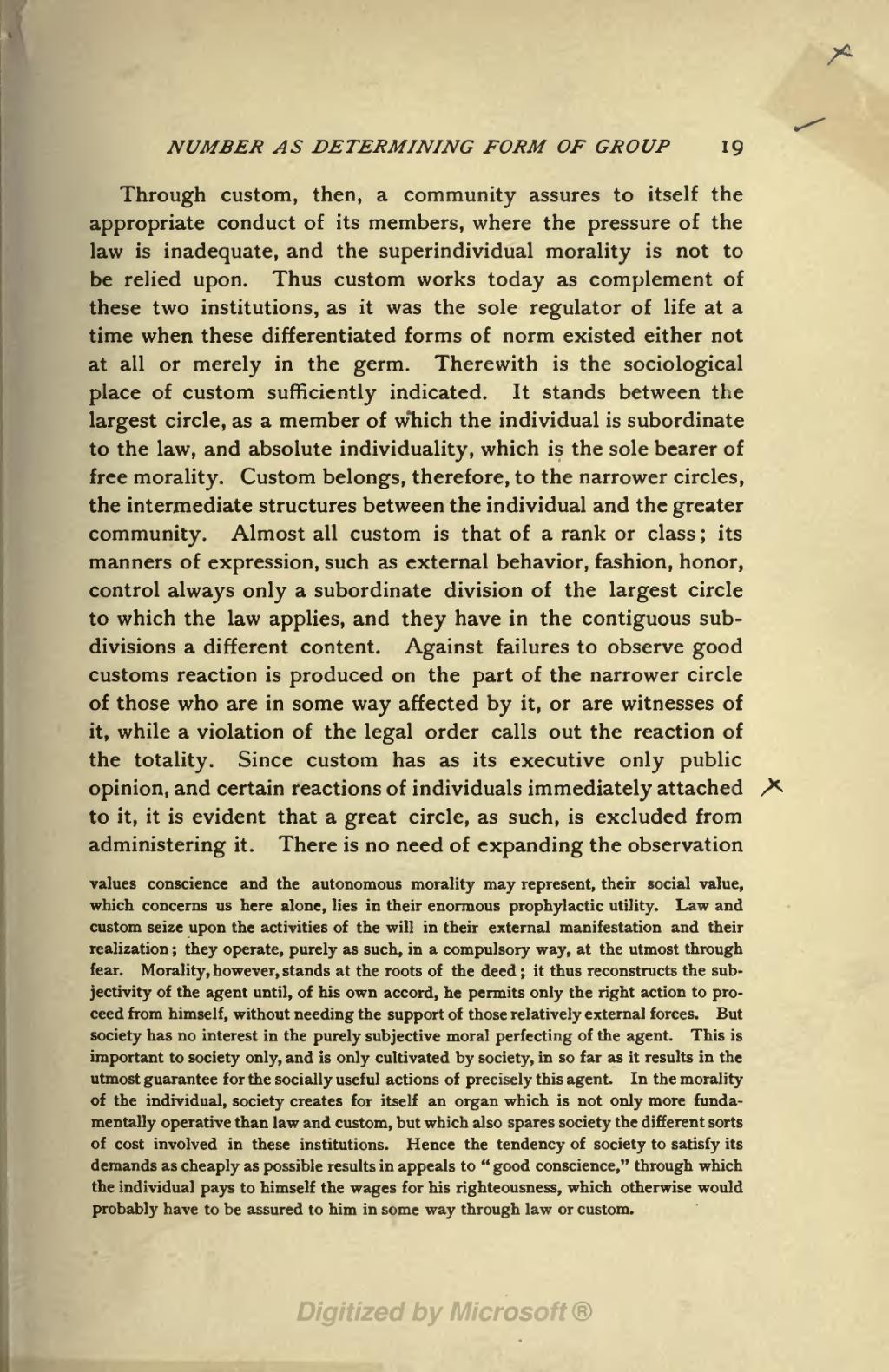Through custom, then, a community assures to itself the appropriate conduct of its members, where the pressure of the law is inadequate, and the superindividual morality is not to be relied upon. Thus custom works today as complement of these two institutions, as it was the sole regulator of life at a time when these differentiated forms of norm existed either not at all or merely in the germ. Therewith is the sociological place of custom sufficiently indicated. It stands between the largest circle, as a member of which the individual is subordinate to the law, and absolute individuality, which is the sole bearer of free morality. Custom belongs, therefore, to the narrower circles, the intermediate structures between the individual and the greater community. Almost all custom is that of a rank or class; its manners of expression, such as external behavior, fashion, honor, control always only a subordinate division of the largest circle to which the law applies, and they have in the contiguous subdivisions a different content. Against failures to observe good customs reaction is produced on the part of the narrower circle of those who are in some way affected by it, or are witnesses of it, while a violation of the legal order calls out the reaction of the totality. Since custom has as its executive only public opinion, and certain reactions of individuals immediately attached to it, it is evident that a great circle, as such, is excluded from administering it. There is no need of expanding the observation
values conscience and the autonomous morality may represent, their social value, which concerns us here alone, lies in their enormous prophylactic utility. Law and custom seize upon the activities of the will in their external manifestation and their realization; they operate, purely as such, in a compulsory way, at the utmost through fear. Morality, however, stands at the roots of the deed; it thus reconstructs the subjectivity of the agent until, of his own accord, he permits only the right action to proceed from himself, without needing the support of those relatively external forces. But society has no interest in the purely subjective moral perfecting of the agent. This is important to society only, and is only cultivated by society, in so far as it results in the utmost guarantee for the socially useful actions of precisely this agent. In the morality of the individual, society creates for itself an organ which is not only more fundamentally operative than law and custom, but which also spares society the different sorts of cost involved in these institutions. Hence the tendency of society to satisfy its demands as cheaply as possible results in appeals to "good conscience," through which the individual pays to himself the wages for his righteousness, which otherwise would probably have to be assured to him in some way through law or custom.
